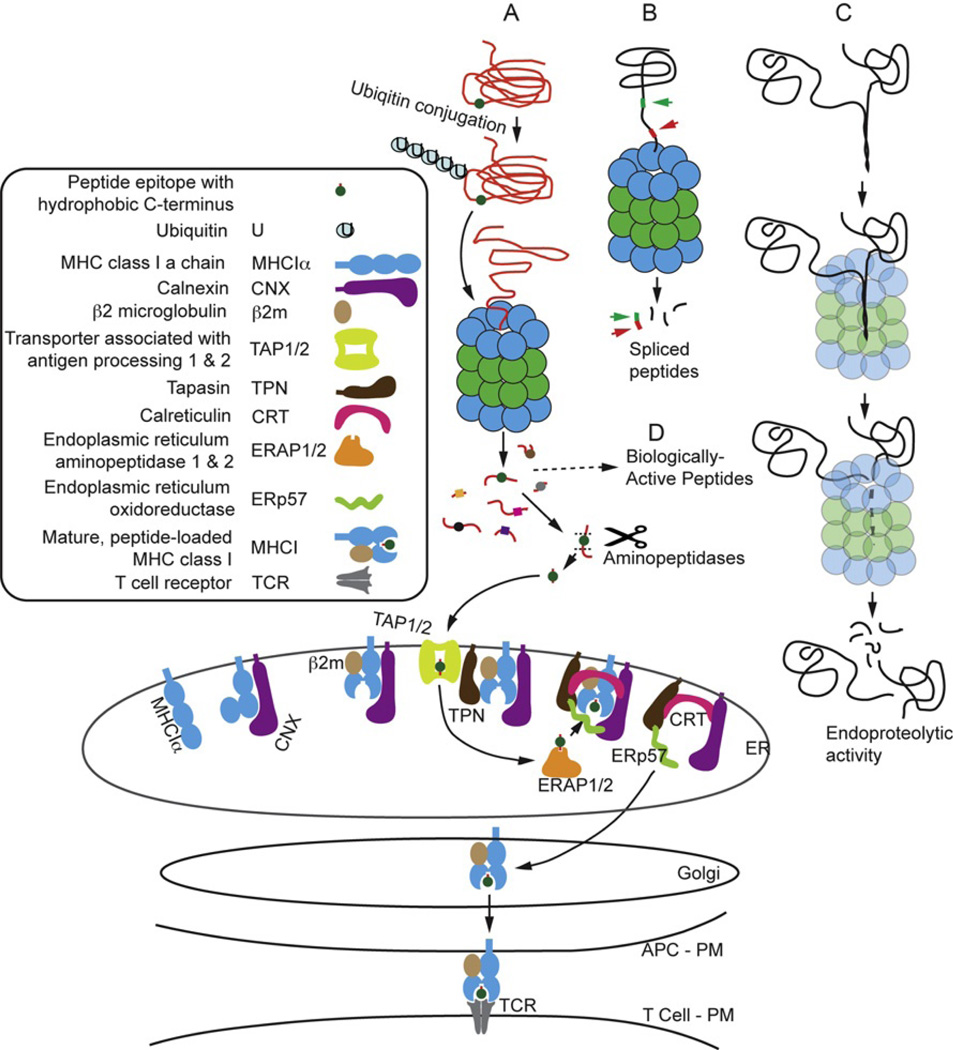Fig. 3.
I-proteasome-dependent pathways of protein degradation. I-proteasome-dependent proteolysis in an antigen-presenting cell (APC) generates peptides and polypeptides for MHC class I-restricted antigen presentation, and for functions other than antigen presentation. (A) The antigen-processing pathway for degradation of a cytosolic protein leading to loading of peptides into MHC class I and antigen presentation to the T cell receptor (TCR). (B) Degradation of a protein by i-proteasome resulting in the generation of a spliced peptide candidate for antigen presentation. (C) I-proteasome-mediated endoproteolytic activity generating large, potentially biologically active polypeptides from a precursor protein. Small peptides may also be produced and would be available for antigen presentation. (D) Some of the small peptides produced by i-proteasome activity may have biological activity. PM, plasma membrane; ER, endoplasmic reticulum.

